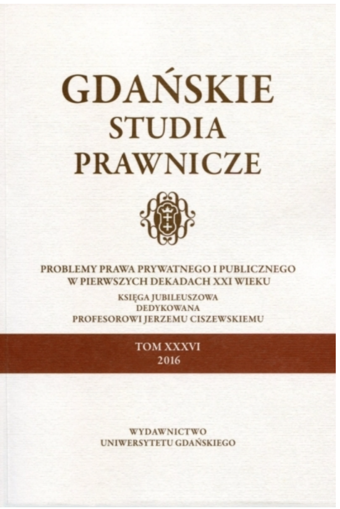Czynne prawo wyborcze osób niepełnosprawnych psychicznie lub umysłowo. Uwagi na tle wyroku Europejskiego Trybunału Praw Człowieka w sprawie Alajos Kiss i Komitetu do spraw praw osób niepełnosprawnych Zsolt Bujdosó i inni
Right to Vote of Persons with Psychologicalor Mental Disabilities. Some Remarks on the Background of the Judgment of the European Court of Human Rights
Author(s): Katarzyna ŁasakSubject(s): Law, Constitution, Jurisprudence, International Law, Human Rights and Humanitarian Law
Published by: Wydawnictwo Uniwersytetu Gdańskiego
Summary/Abstract: The analysis of voting rights of persons with psychological or mental disabilities was provoked by two decisions concerning analogical problem in relation to one state – Hungary. The European Court of Human Rights (ECHR) in the case of Alajos Kiss noticed that it was necessary to make an individual assessment of the situation of the mentally or psychologically disabled for the proper implementation of their right to free elections. The Court confirmed the violation of art. 3 of the Additional Protocol to the Convention for the Protection of Human Rights and Fundamental Freedoms of 1952. On the other hand, the opinion of the Committee on the Rights of Persons with Disabilitiesin case of Zsolt Bujdosó recommended such amendment of the national electorallaw that would exclude the evaluation of the ability to vote of a particular person with theindicated type of disability. A different solution shall be considered to be in contradiction with the Convention on the Rights of Persons with Disabilities of 2006. The issue is evenmore interesting as the opinion of the Committee was issued after the adjustment of theHungarian electoral law to the guidelines resulting from the above mentioned judgment of the ECHR. Therefore, there is a question which standards should be applied by the stateand how the state can protect its own interests.
Journal: Gdańskie Studia Prawnicze
- Issue Year: 2016
- Issue No: XXXVI
- Page Range: 237-250
- Page Count: 14
- Language: Polish

